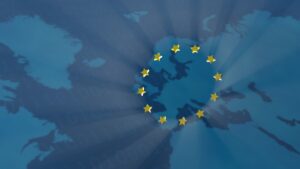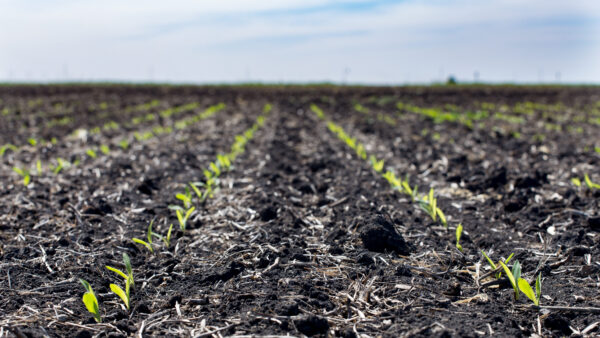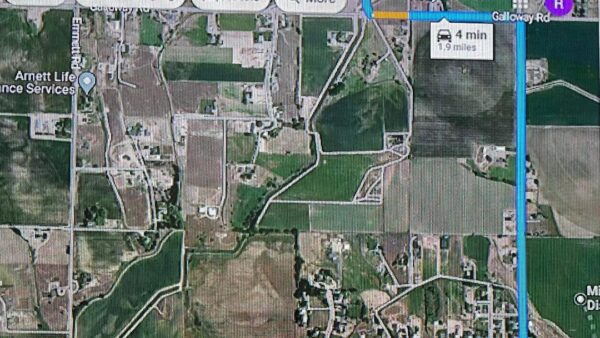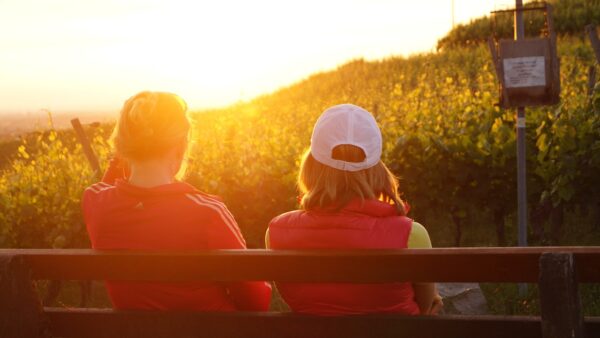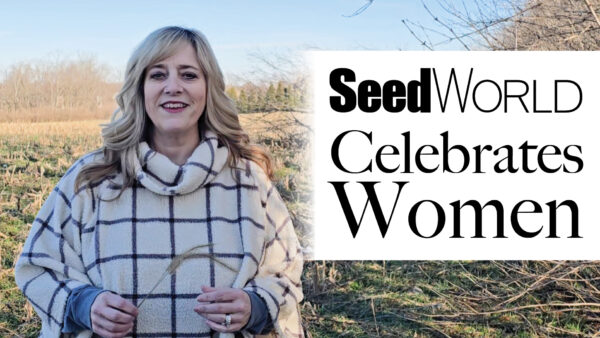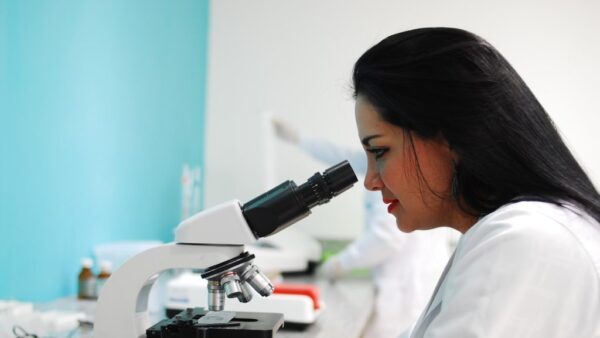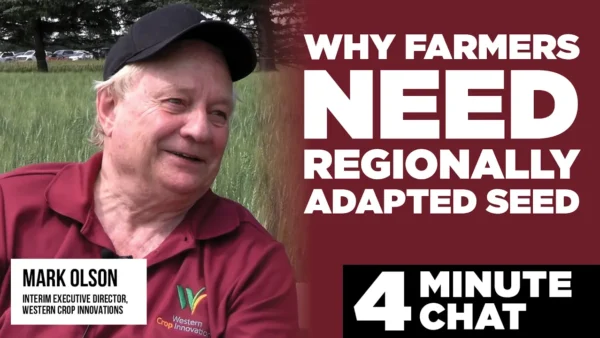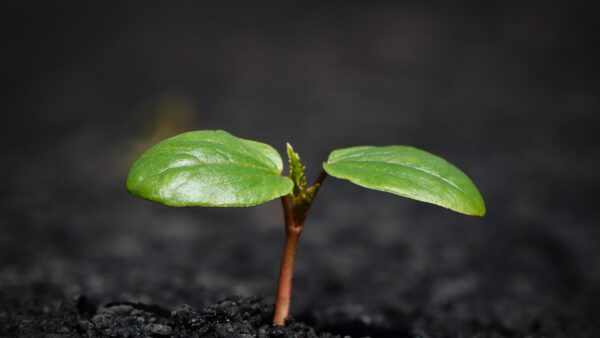In-depth interview with Garlich von Essen.
For the past 15 years, he has been the Secretary-General of the European Seed Association (ESA), now Euroseeds. Before that he was Director Public Affairs at ESA for four years, and Political Advisor in the European Parliament for another four years. He has been leading the European seed sector from one achievement to the next.
At a time of rebranding for the ESA and at a time when a renewed batch of European Union (EU) politicians are settling into their new positions, our sister publication, European Seed, thought it was the perfect time to sit down with Garlich von Essen. Together, they chat about his childhood, working in the EU policy bubble, and his biggest achievements and regrets.
European Seed (ES): Garlich, can you share a little bit about your childhood?
Garlich von Essen (GvE): Indeed, I grew up on the family farm in Lower-Saxony, in the north of Germany. The village, Rastede near Oldenburg, had around 5,000 and the total political community a good 10,000 inhabitants at the time. It was still very much a rural community, with farming and its input industries economically very important and also very visibly present everywhere. We had a dairy processing plant where we delivered our milk and got butter and other dairy products in return, a cooperative where we took our apples in exchange for juice throughout the year, two or three businesses selling and repairing agricultural machinery and tractors were a familiar sight everywhere. In my kindergarten and early school years, I think around half of the kids either came from farms or had a close relative in the farming sector.
ES: What is the fondest memory of your early years?
GvE: I would not be able to pick a specific event. But I always liked the days that marked the change of seasons. Springtime, when you were almost desperately looking out for the first green leaves, summer with the smells of fresh hay and our cereal harvest being dried day and night, the beginning of fall with its beautiful colors, our cattle returning to the stables, and, a very formative element in our family, the start of the shooting season. While these seasons meant constant change during the year, not only in terms of weather but also with regards to the organization of work on the farm and in the family, you also have this natural and ever-returning rhythm of growing and harvesting. Maybe that is one explanation for the stability I always felt surrounding me, despite all the political, economic and societal changes that today seem so clear and present when historians look back and reflect on the 70s and 80s of the last century. The other, for sure, being my family. My parents, my two younger sisters, but also the many relatives that all lived nearby and of whom again many were either farming themselves or had close links to agriculture.
ES: Society and school education has changed a lot over the past decades. What do you think it is that children nowadays are missing compared to the old days as regards knowledge or at least awareness of food production?
GvE: I don’t think it is only the children. The lack of exposure to practical farming, lack of understanding its importance for societies and its manifold challenges, all that is already very broadly present in most of our European societies. For decades, there has been a continuous growth of our urban population while the number of people involved in farming has shrunk dramatically. What you don’t see and don’t experience, you don’t understand. And makes it much easier to decide to ignore or even oppose. Many people never actually see practical farming happen around them. If the one cow children know is the pink one of the chocolate advertisements that apparently lives healthily forever, happily grazes meadows full of flowers and never produces a bad smell, that’s probably one part of the explanation of the growing divide in our modern societies. The way farming is often portrayed, not least by the food industry, doesn’t match reality. And when people realize that, there is a certain feeling of disappointment, even betrayal, and consequently a lasting lack of trust.
ES: Garlich, let’s imagine you could teach a class full of children. What would you tell them?
GvE: Not sure I would make a good teacher. But I think taking kids to farms is probably the best way to start growing that awareness, making them curious about where our foods come from, how and by whom they are produced, from milk to potato and from steak to lettuce, and how difficult and sometimes unpredictable that actually is. I know that there are initiatives and programs like this ongoing. But I also know of cases where children weren’t allowed to go because their parents despised modern farming and didn’t want this view to be challenged through school education. I think that shows how difficult it actually is to start building up a new relationship, based on more practical knowledge and consequently better understanding.
ES: How do you think your early years have influenced your further career choices?
GvE: Without realizing it at the time, of course, I probably got the farming and countryside virus quite early in life. Describing it today as “deeply rooted” is probably a fitting picture. I observed what my father did and talked about, heard and saw what generations before had done: improving soil, managing water and establishing woodlands. To me, it has always felt more a natural development rather than a conscious choice to see myself as part of a continuity, to feel and take a personal responsibility for preserving, further developing and, one day, passing on what was entrusted to me by my ancestors. What then was a conscious and logical decision was to study agriculture at Göttingen University, a decision much supported by my parents who always stressed the need to learn as much as you can in whatever area of choice, not only to truly understand and build up expertise but foremost to broaden your horizon and, consequently, open up wide opportunities.
ES: How did you take an interest in the EU policy bubble?
GvE: I have always been interested in history and politics. At school, these were my favorite subjects. And I had good teachers who motivated me to read beyond the regular curriculum and look at the socio-economic background of historical and political developments. This usually led to quite combative debates as we favored quite different authors and, consequently, theories and conclusions. I was — and actually still am — fascinated by Friedrich August von Hayek’s piece on Law, Legislation, and Liberty, by Locke, Hobbes and Rousseau and their writings about the natural order and the social contract of free individuals. All that probably explains a bit why in my later studies I specialized on agricultural politics, law and economics.
ES: But that’s still quite far away from where you are today, isn’t it?
GvE: True. Honestly, I never imagined, let alone planned, to end up in Brussels. Actually, at the time, I rather saw myself somewhere in the Ministry for Agriculture in Bonn or in my region, in Hannover. But then I did my final thesis on the EU’s — or the EEC’s at the time — structural policies and measures in agriculture, starting with Sicco Mansholt and stretching to the reforms of the 1980s. I did interviews with people at the Directorate for Agriculture in Brussels and was pointed to the possibility of a traineeship with the Commission. Well, that’s how it started. I got hooked. I worked for the Commission, then for a regional office, specialized further in European political and administrative sciences with a Master program at the College of Europe, and finally worked at the European Parliament for a number of years. To me, the logical next step was to work with rather than within the institutions. And when I was offered the chance to establish a new Brussels office for the European seed sector, that was an almost ideal opportunity to combine my EU expertise with my agricultural background and experience. And to truly build something new and leave my mark on it. When I started, there were still four different EU level organizations, and a loose group of vegetable companies, all with very different structures, ideas for the future, budgets and personnel. Merging these into a new, single voice for the entire European industry was a very exciting project. That this would lead to such a long-lasting engagement wasn’t foreseeable at the time.
ES: If you look back over all those years, what do you consider are Euroseeds biggest achievements?
GvE: Maintaining a true spirit of collaboration in a highly differentiated, highly competitive and truly international industry. It is this mix of competition and collaboration that I find truly fascinating about the plant breeding sector. It is reflected not only by structures such as Euroseeds or its national member associations: the International Seed Federation will even celebrate its 100th anniversary in just a few years. You could say the seed sector always had this association gene as part of its DNA, realizing that improving plant varieties requires you to access the best starting material from all over the world. For that, you need agreed rules and regulations that balance a broad access to plant material with the protection of intellectual property and, nowadays, the rights of sovereign countries; you need to facilitate the movement of plant material across borders while avoiding phytosanitary risks and the spread of pests or diseases and so much more. Many of today’s international as well as EU rules and regulations are the result of the industry’s desire and practical need to collaborate by establishing and safeguarding workable rules for fair competition. Despite all the changes over the years, all the mergers and acquisitions, the growing globalization of our economies in general and this sector in particular, this commitment to work together and to build up and continuously support the structures and have dedicated people that organize this collaboration, that is an important achievement. And if I look at Euroseeds today, I think we have both, efficient and effective structures and a very dedicated team of experts.
ES: As you said, success is also thanks to a team. What are the key factors to a great team?
GvE: Historians remain deeply divided whether it is individual men and women that create history or if history itself just happens and allows individual men and women to make use of the newly emerging opportunities.
As individuals, we probably have a preference for the first theory; but in my view and experience, both elements are interdependent and together drive developments. Still, I think it is individual talent, determination and commitment that make the difference. But you also need an environment where they can thrive. That is why I think that rules, structures and processes are important, provided they are designed in ways that drive a participatory discussion and decision making as well as an efficient practical implementation of those decisions. In Euroseeds, we are committed to the concept of subsidiarity; we always try to decide at the most appropriate level, i.e. the one closest to the subject in question. That means a bottom-up approach. On the other hand, if you would look top-down, we try to make sure that the Board exercises leadership on structure, finance and strategy and provides guidance on principal policy issues. And we have a clear understanding between members and Euroseeds secretariat that it is the latter that is expected to bring the necessary expertise to the table to efficiently prepare and lead the internal processes and then effectively drive the external implementation of our members‚Äô positions. This provides a strong base of trust, gives great confidence to the team members and offers them a lot of potential for personal and professional growth; but it also means a lot of individual responsibility and continuously satisfying high expectations. And, last but not least, diversity is not only important for breeding new and better plant varieties. It is also an essential element when you design a team such as the Euroseeds secretariat. We today have a dozen nationalities from all over Europe and also Africa on the team, with very different cultural backgrounds, educations, work experiences etc … This very much stimulates our discussions.¬†
ES: And personally? What would you consider your biggest achievement(s)?
GvE: That’s probably more for others to decide. What I am proud of is building a true team of highly motivated and capable individual experts. This has been the base for taking on new tasks and responsibilities and providing more services to our companies at association level such as e.g. the European Seed Treatment quality Assurance scheme ESTA, the Patent Information system PINTO, or the “Nagoya Navigator”, a guide that facilitates companies‚Äô compliance with international rules on genetic resources.
I am also very content with the way we have developed our annual congress over the years. Bringing together more than a thousand participants from all over the world, every year, is only possible if you provide value for money. The continuous growth of the Congress suggests we do just that.
And maybe the fact that today nobody in the seed industry nor outside can imagine or would like to go back to the time without this organization.




